
North Macedonia’s town of Ohrid hosted for the 3rd consecutive year the Days of Bulgarian Culture, Folklore and Traditions. Over 500 participants from different Bulgarian regions were dancing, singing, playing and popularizing the Bulgarian folklore. The event was organized by Art Vivendi Arts and Culture Association (North Macedonia), ZHAR-S Foundation (Bulgaria), the New Bulgarian University and Association for Macedonian-Bulgarian Friendship with the support of the Bulgarian Embassy in North Macedonia and Ohrid Municipality. This year the festival was held under the auspices of Bulgaria’s Minister of Foreign Affairs Ekaterina Zaharieva.
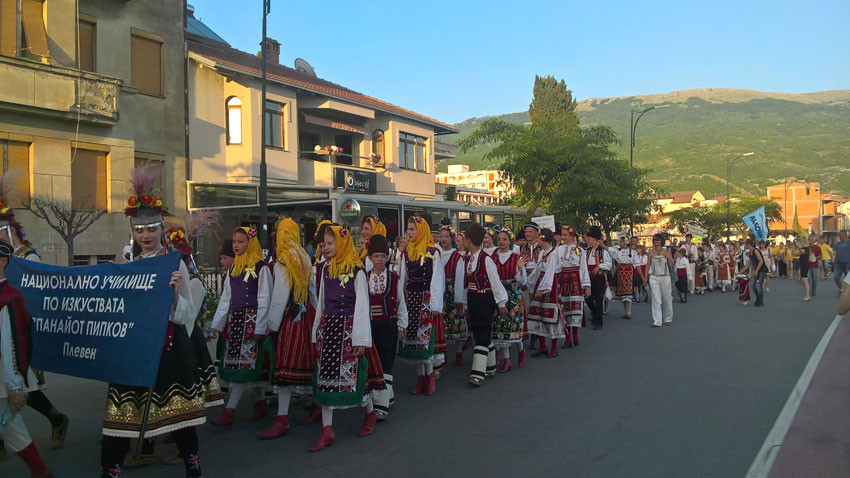
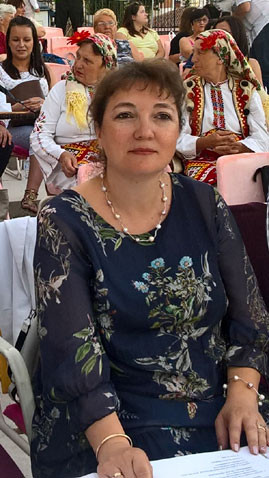 The chair of the jury Dr. Margarita Krasteva, who is a folklorist at the New Bulgarian University told Radio Bulgaria details about the Days of Bulgarian Culture, Folklore and Traditions in Ohrid:
The chair of the jury Dr. Margarita Krasteva, who is a folklorist at the New Bulgarian University told Radio Bulgaria details about the Days of Bulgarian Culture, Folklore and Traditions in Ohrid:
I think that the festival has achieved its goal, because it gathered people from different generations-from four-year-old participants to people who bear the wisdom and the traditions and pass them down on the future generations. Our idea to popularize Bulgarian folklore, tradition and culture in Ohrid is achieved through the people who came from all parts of Bulgaria to present their art in Ohrid.
The Chairman of theArt Vivendi Arts and Culture Association Gjoko Aloski said:
We organize the Days of Bulgarian Culture, Folklore and Traditions for the third consecutive year and I believe that the Bulgarian children will take many beautiful cultural memories with them. Wherever we present the Bulgarian folklore, we will have success, because the Bulgarian children bear this folklore. Ohrid lives for these festival days indeed.
An exhibition of Bulgarian photography of authentic folklore costumes made under the Bulgarian Roots project was held within the frameworks of the festival. A round table themed The Balkan Folklore with the participation of scientists from the Bulgarian Academy of Sciences and folklorists from Greece, Albania and North Macedonia was held as well.
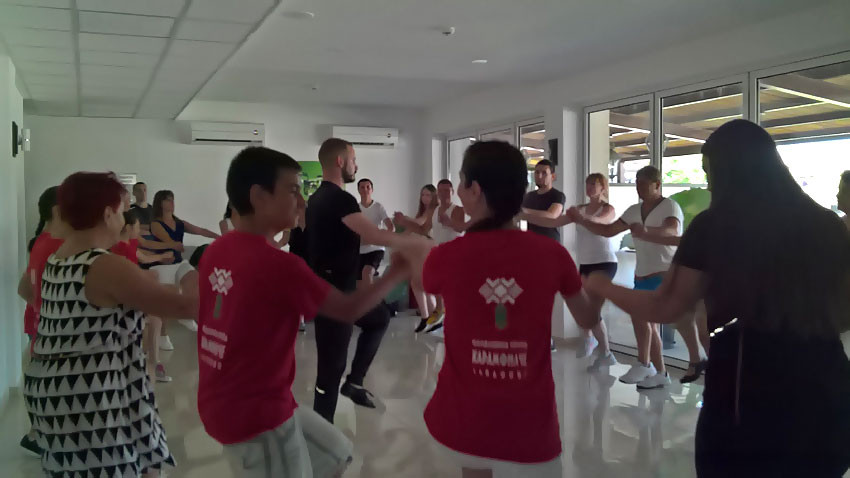
We organized this round table for the first time, because our problems and thinking are the same, although we live in different countries, Dr. Margarita Krasteva went on to say. In fact, all people who participated at this round table agreed that we must do our best to preserve our folklore and traditions through culture and establish a cultural bridge between the countries, because this is the best way to communicate with people from different countries. Music and dance come before the language. We must continue using this type of “language” in the future.
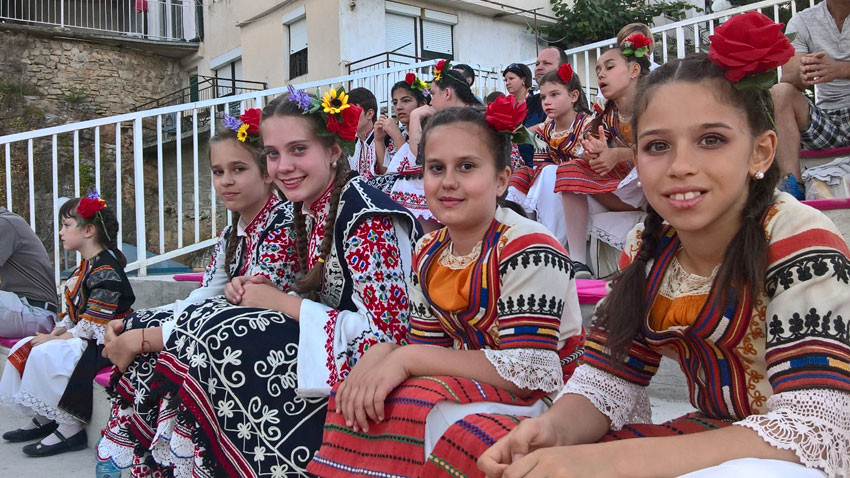
Here is what Dr. Velika Stoykova Serafimovska, ethnomusicologist at the Institute of Folklore Marko Cepenkov – Skopje told Radio Bulgaria:
This serves as a very good example for our countries and may create new opportunities for future cooperation. This is also a good step forward in our attempts to overcome the political problems and the crises on the Balkans. The Balkan folklore is what can unite and connect us and help us understand and find the common peculiarities and values.
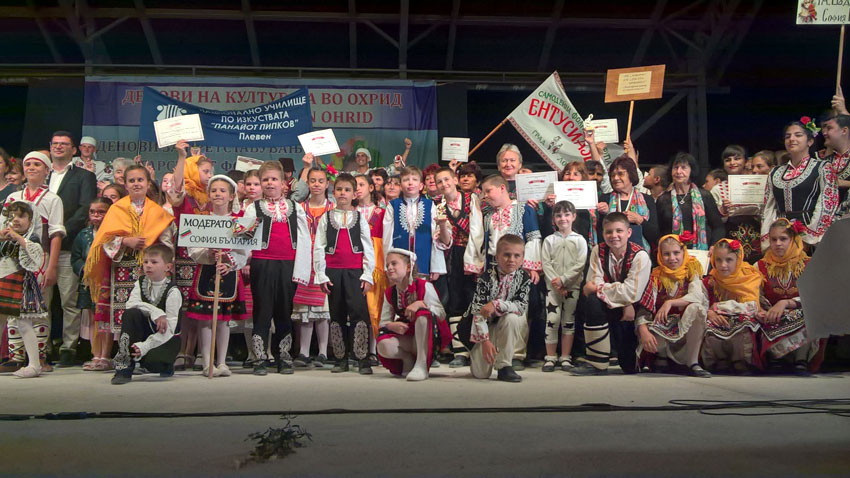
I have been UNESCO National Professional Officer in Albania in the past 12 years, Zhulieta Harasani said. The various departments should be able to communicate and cooperate more, so they can enrich the fund, because currently there is a shortage of highly-qualified people which are able to work and contribute to the richness of folklore of our countries. We should put aside the things that divide us and work over our common interests and try to expand the cultural and material diversity.
English version: Kostadin Atanasov
Photos: Sevkiye CakirBulgarian artist and architect Vivia Niki presented her new land art creation—a giant three-dimensional candle painted on a meadow in the forests of the Plana Mountain, which seems to flicker like a living flame only when viewed from the air at a..
Theater enthusiasts in Bulgaria are already counting the hours until start of the 13th edition of Theaters Night. This exciting evening will turn the stages in 11 Bulgarian cities into a true celebration of the arts. The event’s ambassadors are..
On November 6 in Los Angeles, the new foundation Bulgarian Classical Concerts - Los Angeles officially began its activities with a chamber concert, which featured works by Bulgarian classical and contemporary composers - Pancho..
The eighth International Violin Competition “Vasco Abadjiev” will take place in Sofia from 20 to 23 November, attracting record interest. The organizers..

+359 2 9336 661
